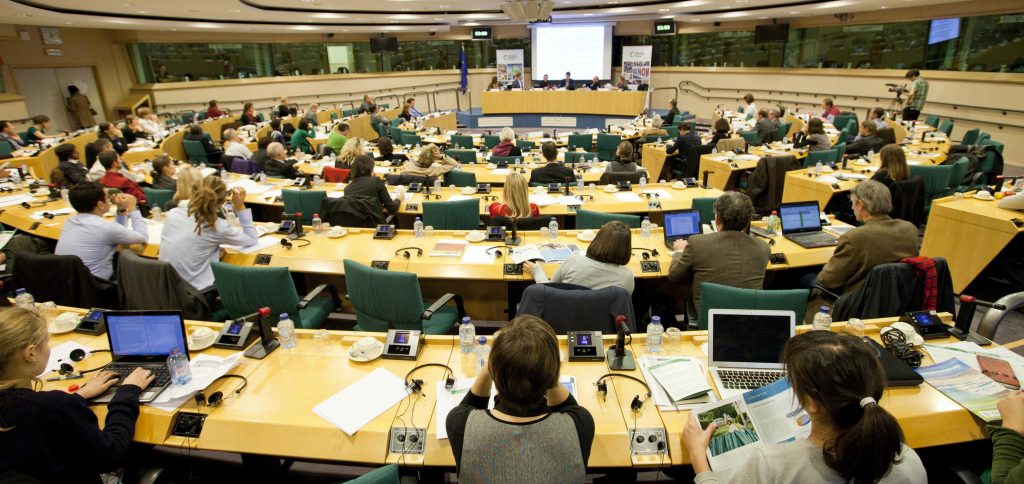Brussels / Strasbourg, 13 March – The European Coalition for Corporate Justice (ECCJ) [1] has welcomed today’s approval by the European Parliament of a Corporate Social Responsibility (CSR) resolution urging the European Commission to extend legal obligations to some key aspects of corporate accountability. By voting for the resolution, MEPs have called for directors to personally take on legal responsibility for the behaviour of their companies; for European corporations to be liable in the EU for damage they cause abroad; and for lobbyists to be obliged to disclose their clients and budgets. [2]
Paul de Clerck, ECCJ steering group member, said:
“This report tells the Commission that it needs to fill the gaps left by its Communication on CSR. We applaud MEPs for passing a meaningful report despite strong pressure from business lobbies, such as Businesseurope and Eurocommerce against the report’.”
Although the resolution recognises that the European Commission defines CSR as voluntary, it demands a pragmatic approach to CSR. It says both mandatory and voluntary initiatives should be embraced depending on what works best in a given situation.
Richard Howitt, socialist MEP and author of the report, said:
“There should be no artificial divide between CSR and issues of corporate accountability and governance.”
The resolution breaks new ground on some important issues. For example, it calls on the Commission to implement a system by which victims of corporate abuse by European companies in third countries can seek redress in European courts.
ECCJ Co-ordination Ruth Casals said:
“As a self-professed champion of human rights, the EU must make European companies accountable for their actions, wherever they operate.’”
In addition, the resolution advocates extending the legal obligations of directors to include minimising the harmful environmental and social effects of the companies they manage.
Lobbying transparency is also addressed, with the resolution calling for mandatory disclosure for corporate and other lobbyists and for balanced access between business groupings and other stakeholder groups towards EU policy-making.
The resolution also backs the establishment of an EU ombudsman on CSR to undertake independent inquiries on CSR-related issues at the request of companies or any stakeholder group, and calls on the European Commission to incorporate existing internationally agreed standards and principles.
However, the resolution falls short in its half-hearted call for environmental and social reporting, significantly weaker than the original text passed by the Employment and Social Affairs Committee. While it endorses integrated environmental and social reports to be included with required financial reporting, it is not prescriptive enough to bring about the true change needed for consumers and investors to be able to assess how responsible a company is.
The ECCJ regrets that the report does not push hard enough for better use of the 2004 Public Procurement Directives. This existing legislation, not widely implemented, allows EU member states to take environmental and social criteria into account when issuing calls for tender and drafting contracts. The Commission needs to be reminded of the importance of these directives, as well as the link between public procurement and standardised environmental and social reporting.
***
See file: ECCJ – press briefing CSR report (pdf)
***
NOTES:
[1] The ECCJ is a leading initiative that brings together 16 national platforms and over 200 civil society organisations working on issues of Corporate Justice around Europe, including national chapters of Oxfam, Greenpeace, Amnesty International and Friends of the Earth







